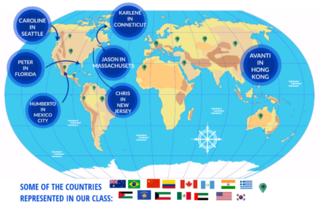Education
Teaching and Writing About Diversity
Worldwide students respond to diversity taught through a scientific lens.
Posted November 4, 2017

For around fifteen years -- at Northwestern and Harvard – I have been teaching a course on the 'Psychology of Diversity' and have, since 2014, been teaching it online at Harvard via live web conference too. Also, recently, I finished writing a new book titled The Science of Diversity (forthcoming, Oxford University Press).
Both the course and the book aim to shed light on the deep divides over race, ethnicity, religion, and culture.
Many people who teach and write about diversity have an agenda, sometimes, overt, more often hidden. They seek to prove or disprove the importance of diversity, the superiority or inferiority of one particular approach to diversity education, or some point about outlawing biases by a command-and-control training approach.
By contrast, I try to use my research, clinical, and personal experiences to raise new questions and to provide new insights into old questions. I make no claim of being “right.” Nor do I claim any authority of what people should do or not do or believe or not believe.
My goal is simply to stimulate discussion among students and colleagues who share my fascination with the enduring influence that diversity has on our lives and our relationships.
My Harvard, teaching fellow, Lizbeth Jacobs, wondered how the course affected the students. To find out she interviewed our students around the world and created a video presentation in which they reflect what it is like to learn about diversity through a scientific lens and the lifelong lessons learned from the course. See what students around the world are saying.
Copyright © Mona Sue Weissmark All Rights Reserved
References
Weissmark,M. (forthcoming). The Science of Diversity. Oxford University Press, USA.
Weissmark, M. (2004). Justice Matters:Legacies of the Holocaust and World War II. Oxford University Press, USA.
Weissmark, M. & Giacomo, D. (1998). Doing Psychotherapy Effectively. University of Chicago Press, USA.


